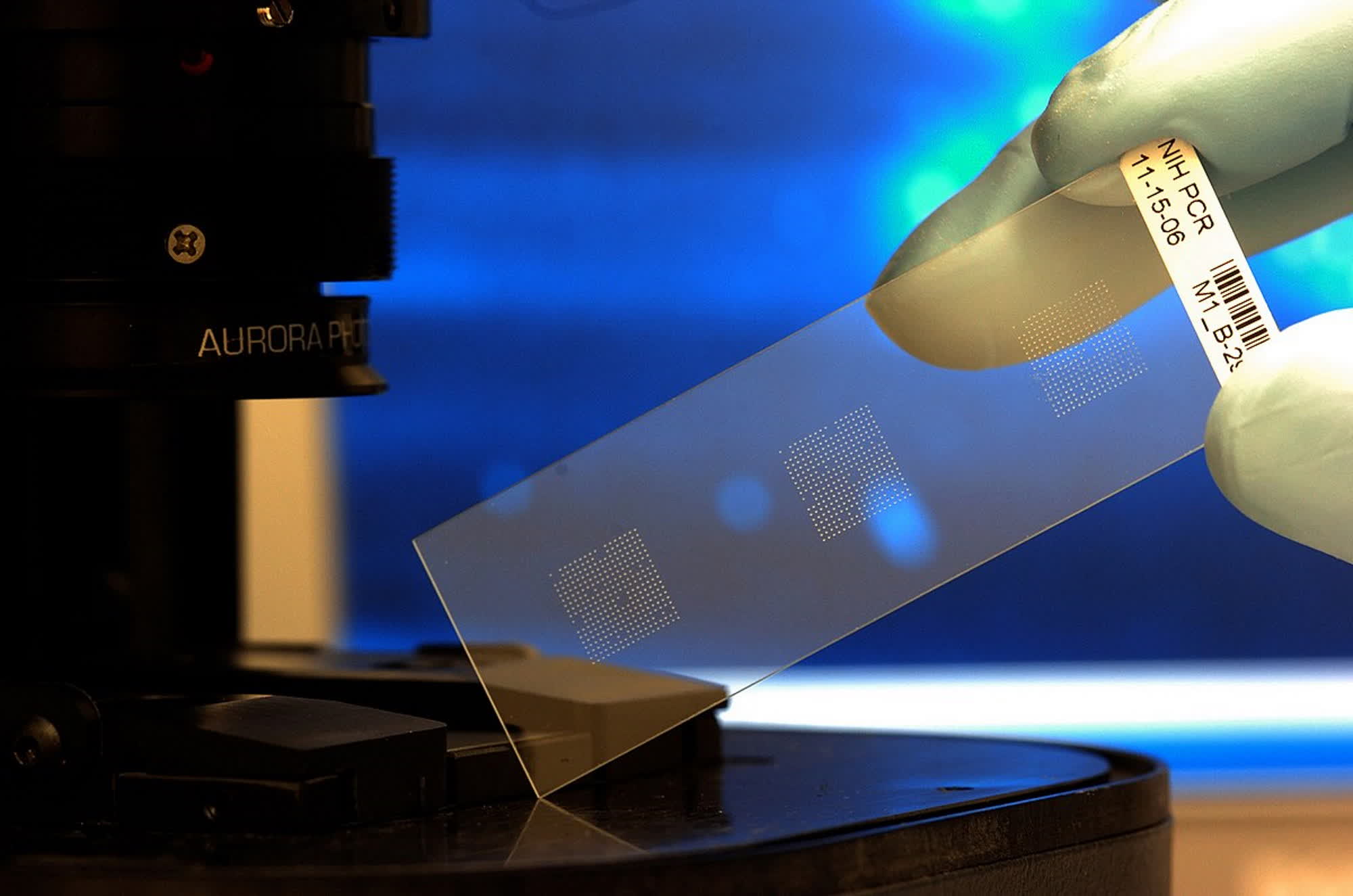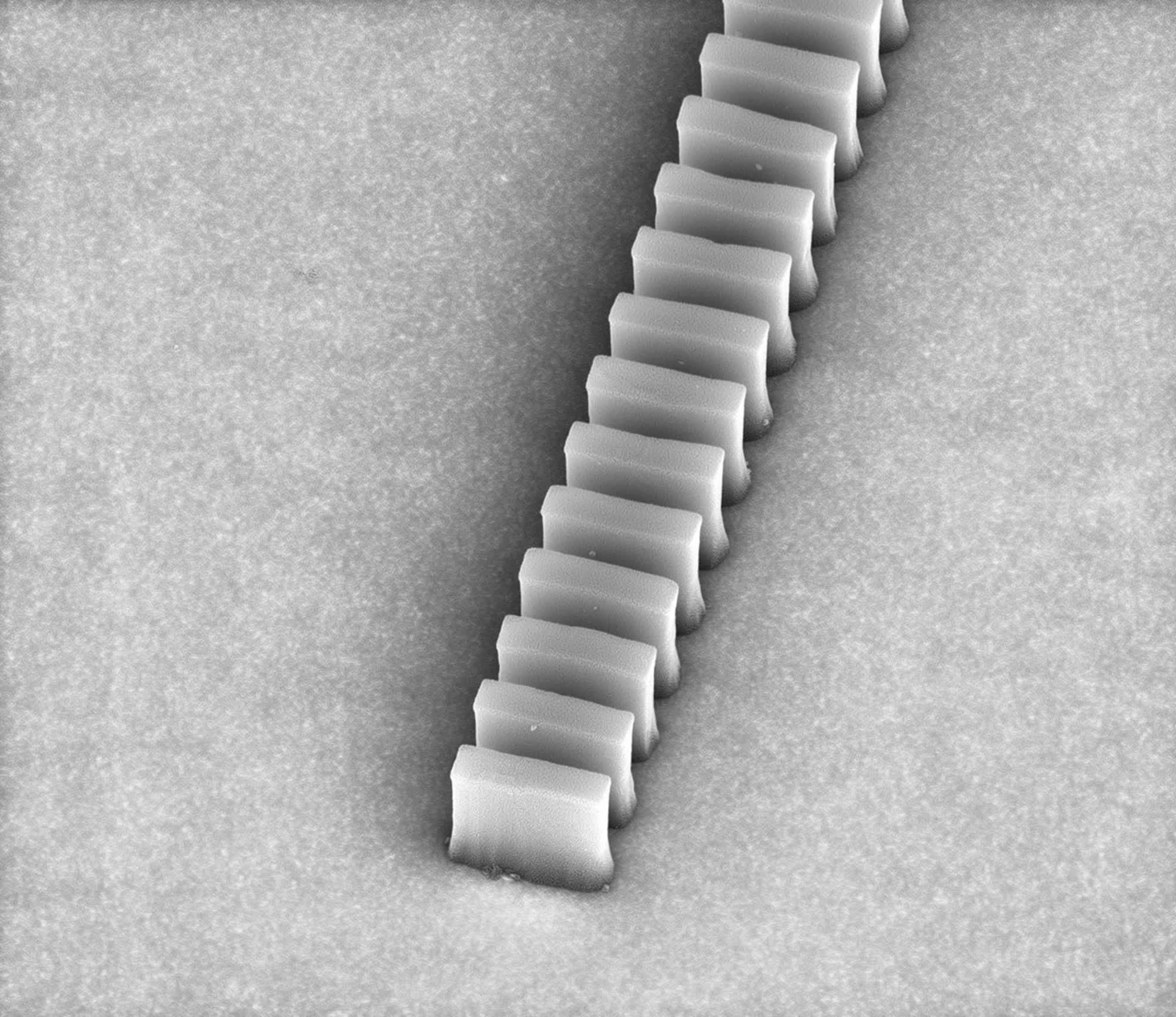Forward-looking: Biochips employ engineered substrates as "miniaturized laboratories," providing researchers and clinical staff with a portable and potent diagnostic solution. A new silicon-based, optical biochip could do much more than that.

A new study published on Nature Communications describes biochip technology for rapid genetic screening, a potentially revolutionary solution that could turn virus and disease detection into a cheap and quick affair. The researchers have already created a new company (Pumpkinseed Bio) to bring said technology to the market sooner rather than later.
Developed by scientists at Stanford University for fast detection of gene fragments belonging to the Covid-19 virus (SARS-CoV-2), the technology employs "metasurfaces" made by arrays of microscopic silicon boxes. These boxes are 500 nanometers high, 600 nanometers long, and 160 nanometers wide, and they can focus near-infrared electromagnetic radiation on top of their surface.
The focused light provides an easier way for optical microscopes to detect the shift in the wavelength coming from each box, which can vary depending on the molecules "sitting" on top. The researchers tested their metasurfaces by tethering gene fragments with 22 nucleotides to the silicon boxes, soaking the arrays in a buffer solution.
The tethered genetic fragments were then able to bond with "complementary" DNA fragments added to the solution. These DNA strands signaled their presence by affecting the electromagnetic wavelength on the surface of each silicon box.

Jennifer Dionne, an applied physicist at Stanford University, said that the new biochip could detect the presence of target genes with as few as 4,000 copies per microliter. The device doesn't need time-consuming replicating techniques like the notorious polymerase chain reaction (PCR), the researchers stated, as it is sensitive enough to detect a typical concentration of SARS-CoV-2 virus fragments found in a nasal sample.
The biochip can detect DNA strands and proteins in minutes, providing information about how intense an infection is as well. The technology could be used for both clinical diagnostic applications and for tracking molecules outside the lab, the researchers said, providing environmental scientists with a "game-changing" genetic probing solution.
Dionne and colleagues have formed the Pumpkinseed Bio venture to quickly commercialize their research, aiming to create a biochip that can detect multiple disease biomarkers at the same time. According to Chris Scholin, a molecular biologist and CEO of the Monterey Bay Aquarium Research Institute, the technology could play a bigger role in environmental probes while it will need to fight several competing solutions in clinical diagnostics.
https://www.techspot.com/news/99789-new-silicon-based-metasurfaces-can-rapidly-detect-toxins.html